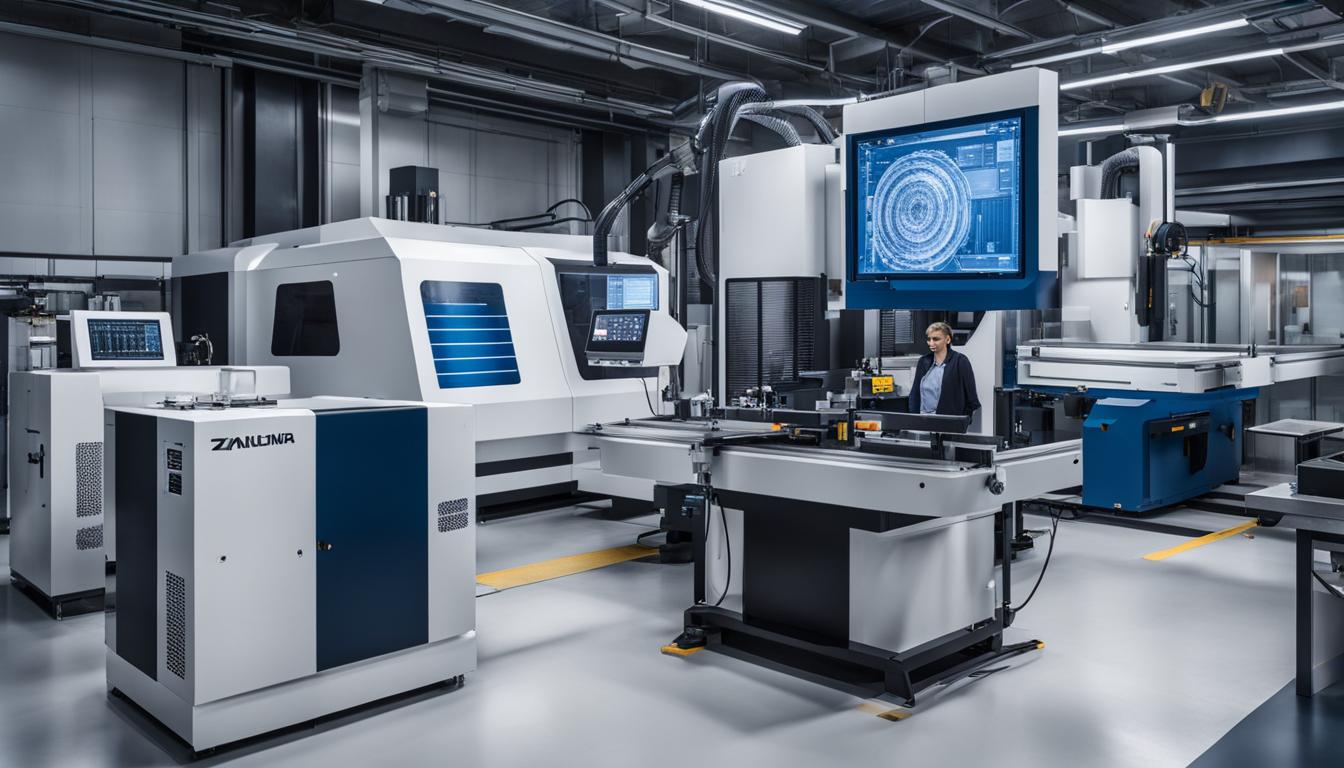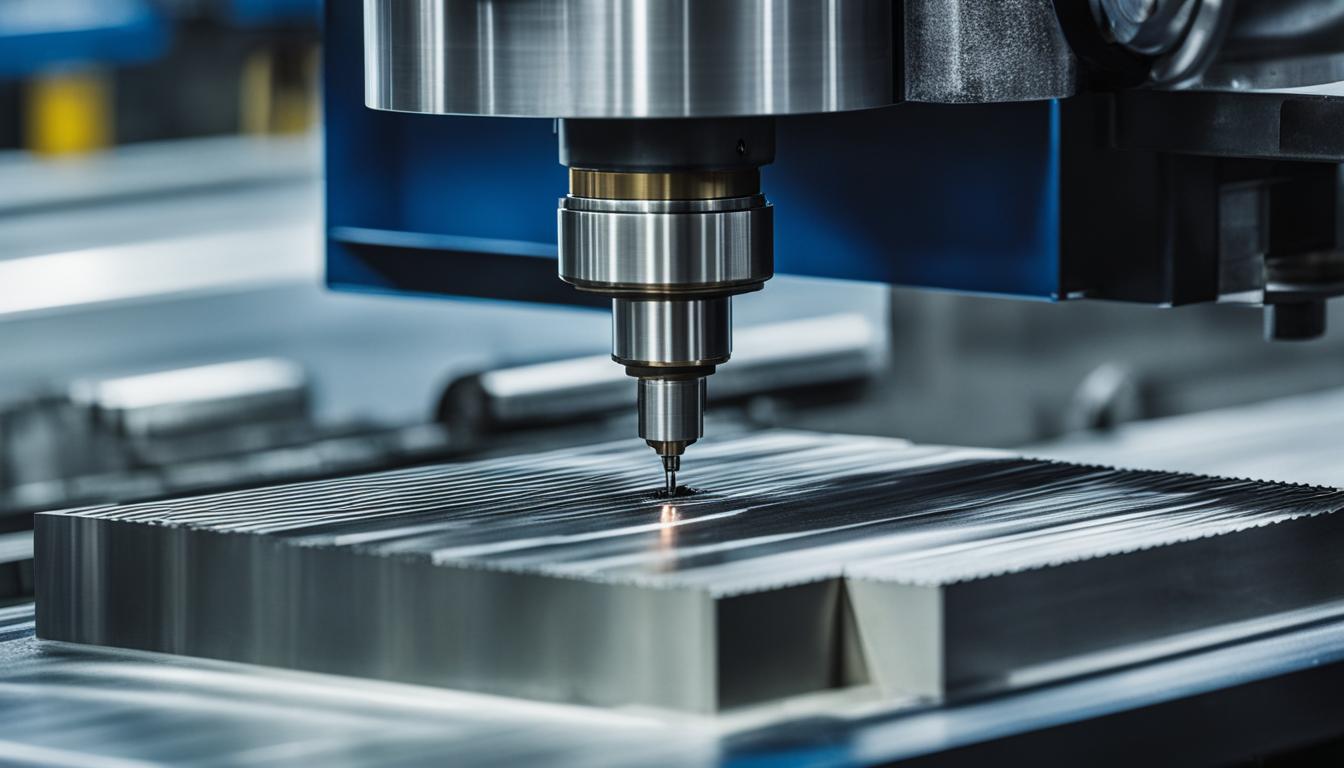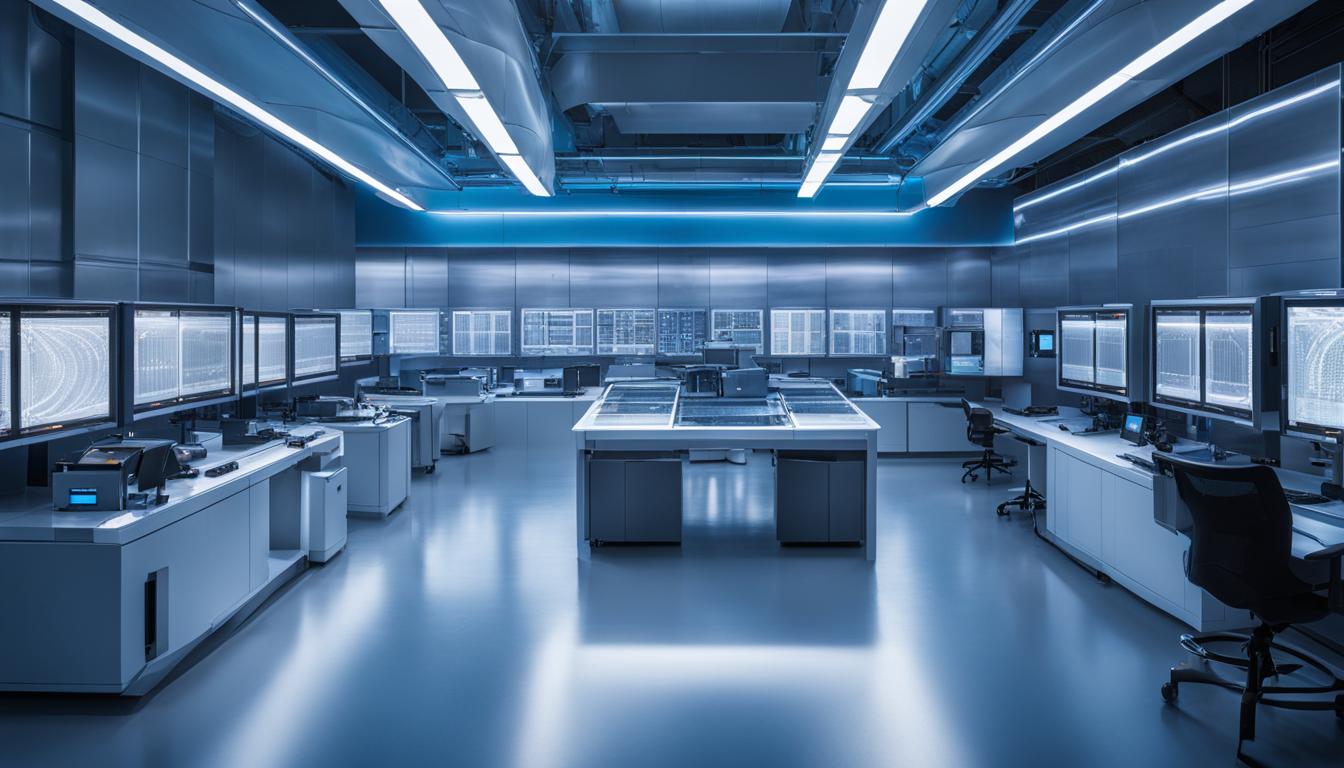Nano-precision machining in CNC milling is set to revolutionize the industry in 2024. This cutting-edge technology allows for incredibly accurate and precise manufacturing of parts, with tolerances as small as a few nanometers. This level of precision opens up new possibilities for industries such as aerospace, automotive, and electronics, where high-quality components are crucial. By leveraging advanced machining techniques and state-of-the-art equipment, manufacturers can produce parts that meet the stringent requirements of modern applications. The rise of nano-precision in CNC milling is expected to have a significant impact on the manufacturing sector, leading to improved product quality, increased efficiency, and enhanced capabilities.
Advancements in CNC Milling Technology
Advancements in CNC milling technology have played a pivotal role in the rise of nano-precision machining. Manufacturers have consistently pushed the boundaries of precision and accuracy by harnessing innovative techniques and state-of-the-art equipment. One notable advancement is the use of advanced cutting tools, such as high-speed steel and carbide inserts. These cutting tools offer exceptional performance and durability, enabling manufacturers to achieve higher levels of precision in their machining processes.
Moreover, the integration of advanced software and automation systems has revolutionized CNC milling. These technological advancements have enhanced the efficiency and productivity of precision parts manufacturing. CNC milling machines are now equipped with sophisticated software that allows for real-time optimization and control. Automation systems have also streamlined the manufacturing process by reducing the need for manual intervention, resulting in faster production times and improved quality control.
The Role of Advanced Materials
In addition to cutting-edge tools and software, the use of advanced materials in CNC milling has contributed to the advancements in precision machining. The demand for high-performance components in industries such as aerospace and automotive has led to the development of new materials, including composites and alloys. These materials present unique challenges in terms of machining and require specialized techniques to achieve nano-level tolerances.
The integration of CNC milling technology with advanced materials has enabled manufacturers to produce parts with exceptional strength, durability, and precision. By leveraging the capabilities of CNC milling machines and staying at the forefront of material science, manufacturers can meet the evolving demands of various industries and deliver high-quality, reliable components.
| Advancements | Impact |
|---|---|
| Use of advanced cutting tools | Higher precision and accuracy in machining processes |
| Integration of advanced software and automation systems | Enhanced efficiency and productivity |
| Utilization of advanced materials | Ability to meet the demands of high-performance industries |
These advancements in CNC milling technology have propelled the field of precision parts manufacturing to new heights. With each innovation, manufacturers are better equipped to produce complex and high-quality components that meet the stringent requirements of modern applications. As the demand for nano-precision machining continues to grow, we can expect further breakthroughs in CNC milling technology, driving the industry forward and shaping the future of manufacturing.
CNC Milling Industry Trends in 2024
In 2024, the CNC milling industry is poised to experience significant trends that will drive the advancement of precision machining, pushing the boundaries of what is achievable. These trends reflect the ever-increasing demand for higher precision and efficiency in the manufacturing sector. As technology continues to evolve, CNC milling is set to revolutionize the production of precision parts, meeting the requirements of diverse industries.
Increasing Demand for Miniaturized Components
One key trend in 2024 is the growing demand for miniaturized components in industries such as medical devices and consumer electronics. Advances in technology have led to the development of smaller, more compact devices, requiring manufacturers to achieve unprecedented levels of precision. This trend drives the adoption of nano-precision machining techniques in CNC milling, enabling the production of intricate and highly accurate components to meet the demands of modern applications.
Integration of Artificial Intelligence and Machine Learning
Another trend shaping the CNC milling industry in 2024 is the integration of artificial intelligence (AI) and machine learning (ML) algorithms into machining processes. AI and ML algorithms provide real-time optimization and self-adjustment capabilities, allowing CNC milling machines to continually improve precision and efficiency. This integration enhances the overall performance of CNC milling operations, enabling manufacturers to achieve higher levels of accuracy and productivity.
Advancement in Materials and Specialized Techniques
As industries continue to develop advanced materials, such as composites and alloys, precision machining techniques must also evolve. These materials often require specialized techniques to achieve nano-level tolerances, resulting in the need for further advancements in CNC milling technology. In 2024, we can expect to see progress in the development of new cutting tools, strategies, and machining processes aimed at effectively working with these advanced materials.

| Trend | Description |
|---|---|
| Increasing Demand for Miniaturized Components | The demand for smaller, more compact components in industries such as medical devices and consumer electronics is driving the adoption of nano-precision machining techniques. |
| Integration of Artificial Intelligence and Machine Learning | The integration of AI and ML algorithms into CNC milling processes enables real-time optimization and self-adjustment, leading to improved precision and efficiency. |
| Advancement in Materials and Specialized Techniques | The development of advanced materials necessitates the advancement of cutting tools, strategies, and machining processes to achieve nano-level tolerances. |
The Role of CNC Turn-Mill Centers in Nano-Precision Machining
In the world of nano-precision machining, CNC turn-mill centers play a vital role in achieving unparalleled levels of precision and accuracy. These advanced machines combine the functionalities of turning and milling, allowing for the production of complex parts with exceptional precision. With the integration of CNC turn-mill centers, manufacturers can streamline their machining processes, reducing setup time, tool changes, and overall production costs.
One of the key advantages of CNC turn-mill centers is their ability to perform multiple operations in a single setup. This eliminates the need for intermediate machining steps and ensures consistent accuracy throughout the production process. The seamless transition between turning and milling operations enables manufacturers to achieve intricate shapes, tight tolerances, and flawless finishes. With the rise of nano-precision machining, CNC turn-mill centers are poised to become an indispensable tool for producing high-quality, precise components.
The Benefits of CNC Turn-Mill Centers
There are several notable benefits to utilizing CNC turn-mill centers in nano-precision machining:
- Increased Efficiency: The integration of turning and milling capabilities in a single machine setup reduces production time, eliminates the need for multiple machines, and minimizes material handling, resulting in improved efficiency.
- Enhanced Accuracy: CNC turn-mill centers offer exceptional precision and repeatability, allowing for the production of complex parts with tight tolerances. The seamless transition between operations ensures consistent accuracy throughout the machining process.
- Cost Savings: By minimizing setup time, reducing tool changes, and optimizing material usage, CNC turn-mill centers contribute to cost savings in the production process. The streamlined workflow also reduces labor requirements and increases overall productivity.
- Versatility: CNC turn-mill centers can accommodate a wide range of materials and part geometries, making them versatile machines for various industries. They can handle both small-scale production runs and high-volume manufacturing with ease.
The integration of CNC turn-mill centers in nano-precision machining is set to revolutionize the manufacturing industry. These advanced machines offer unmatched precision, efficiency, and versatility, making them indispensable tools for producing high-quality, precise components. As the demand for nano-precision machining continues to grow, CNC turn-mill centers will play a crucial role in shaping the future of CNC milling.

The Future of Nano-Precision in CNC Milling
The future of nano-precision in CNC milling holds immense promise, as advancements in technology and the growing demand for high-precision components continue to drive innovation. Manufacturers are constantly pushing the boundaries of precision machining, resulting in significant improvements in accuracy, surface finish, and overall efficiency. As we look towards 2024 and beyond, the next generation of CNC milling is poised to revolutionize the manufacturing industry.
One key aspect of the future of nano-precision machining is the integration of cutting-edge technologies. Additive manufacturing, also known as 3D printing, has already made significant strides in the industry. By combining additive manufacturing with CNC milling, manufacturers can create intricate and complex parts with unprecedented precision. This hybrid approach opens up new possibilities for the production of highly customized components, and is expected to play a significant role in the future of precision machining.
Another technology that is set to shape the future of nano-precision in CNC milling is robotics. The use of robots in manufacturing processes has been steadily increasing, and they offer several advantages in precision machining. Robots can perform repetitive tasks with high accuracy and consistency, reducing the margin for error. Additionally, robots can work alongside human operators, enhancing productivity and efficiency. As robotics technology continues to advance, we can expect to see further integration of robots in CNC milling processes, enabling even greater levels of precision and automation.
Looking ahead, the future of nano-precision in CNC milling holds exciting prospects for manufacturers and industries alike. As precision machining techniques continue to evolve and new technologies emerge, we can anticipate a transformation in the production of complex and high-quality parts. With the relentless pursuit of accuracy, efficiency, and innovation, CNC milling in 2024 and beyond is set to redefine the manufacturing landscape.
